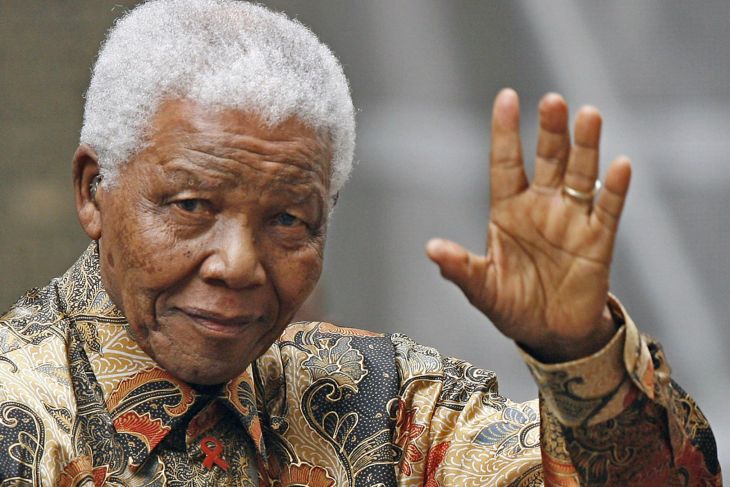In a previous article I asked if international sanctions could prove successful in changing an odious regime.
While they don’t seem to be having the desired effect on Russia, one place where sanctions did work brilliantly was in South Africa in the 1980’s. Many in the international community abhorred the apartheid regime. For years they sought the release of Nelson Mandela from prison and demanded the creation of a state in which all citizens would have equal political and social rights.
July 18th was Nelson Mandela Day, a day set aside to remember one of the greatest leaders of the 20th and 21st centuries; one that all other leaders would be wise to emulate.
An activist leader in South Africa from the 1940’s, he was arrested in 1962 and imprisoned for life.
In 1990. then President F.W. de Klerk, fearing a national violent uprising, released Mandela after 27 years of incarceration. He and Mandela then spent three years negotiating the transition to representative democracy.
During this time, Mandela exhorted his followers to avoid bloodshed and help him create a “rainbow nation” that would embrace all races and creeds.
He set the example by forgiving his captors and in keeping white civil servants from the previous regime on after he formed the first truly democratic government of South Africa in 1994.
One story has it that one evening while in a restaurant with some aides, they all noticed a white man at the next table who seemed to be trembling. Mandela asked his assistant to invite the gentleman to join them, which he did with trepidation. According to reports, Mandela embraced him and introduced him to his aides as his former jailer.
This was the man, this was the leader, and his was the vision that the international community envisaged when it acted to force an end to the regime.
Sanctions played a central role in the dismantling of apartheid. When he became prime Minister of Canada in 1984, Brian Mulroney made the termination of the regime a central pillar of foreign policy. In this, Mulroney was privately supported by Queen Elizabeth (as Head of the Commonwealth) and overtly by most other Commonwealth member states.
Missing were two important players on the world scene: U.S. President Ronald Reagan and British Prime Minister Margaret Thatcher, who both rejected sanctions against the regime. Both leaders regarded Mandela with suspicion and feared that he would turn the country into a Soviet ally.
This however, was not Mandela’s nature.
In prison he realized that if he did not forgive his jailers and create a multi-racial society, he would always be in a prison of sorts.
He forged a government of black and white ministers, kept the economy functioning, and sought to make white South Africans feel a vital part of the evolving national process.
To thank those who had supported the sanctions movement and the fight to end apartheid, he first visited the Queen and the Commonwealth Secretariat in London, and immediately went to Canada to thank Canadians for their vital support.
Those of us who have seen the film Invictus know how his embracing of the white South African rugby team that won the 1995 world championship made many white South Africans see him in a new light and encouraged them to feel at home despite the radical political and social changes Mandela had wrought.
It also demonstrated to black South Africans that they had to maintain the white presence in South Africa to avoid the economic collapse that other African states lived through after forcing white settlers to leave after independence.
Although he could have run for office again for a second five-year period, he decided not to do so to set an example for other African leaders who tended to stay in power for decades. He knew when to arrive and when to leave with no trace of scandal of improper enrichment. Another example for African leaders.
In his retirement in 2007, he founded The Elders, an international non-governmental organisation of public figures noted as senior statesmen, peace activists and human rights advocates. They describe themselves as "independent global leaders working together for peace and human rights".
His spirit and fearless vision of life is captured in the final stanza of a favorite poem of Mandela’s -- Invictus by William Ernest Henley which captures his spirit and fearless vision of life.
It matters not how strait the gate,
How charged with punishments the scroll,
I am the master of my fate,
I am the captain of my soul.
Keep reading: A Papal Apology
Edición: Laura Espejo
